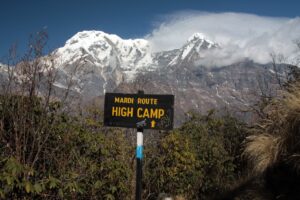Underestimating the Terrain
Nepal’s treks feature a variety of terrains, from lush valleys to rugged highlands. First-time trekkers sometimes underestimate the difficulty of these trails. Researching the trek you plan to undertake is essential to understanding the altitude, terrain, and weather conditions. Proper preparation will help you handle the trek effectively and enjoy the stunning landscapes.
Inadequate Preparation
Proper preparation is crucial for a successful trek. This includes physical conditioning, choosing the right gear, and understanding the trek specifics. Many first-time trekkers fail to train adequately, leading to exhaustion and injuries. Start preparing weeks or even months in advance. Incorporate cardio, strength training, and practice hikes to build endurance.
Ignoring Altitude Sickness
Altitude sickness is a serious concern on high-altitude treks in Nepal. Symptoms such as headaches, nausea, and dizziness can affect trekkers who don’t acclimatize properly. To avoid altitude sickness, ascend slowly and stay hydrated. Allow extra time for acclimatization days in your itinerary. Proper acclimatization is crucial for a safe and enjoyable trek.
Overpacking or Underpacking
Packing the right gear is essential for comfort and safety. Overpacking can be cumbersome, while underpacking can leave you unprepared. Striking the right balance is key. Pack lightweight, moisture-wicking clothing, proper trekking boots, and essential items like a sleeping bag and first-aid kit. Avoid carrying unnecessary weight that could slow you down.
Neglecting to Hydrate
Proper hydration is crucial for maintaining energy and preventing altitude sickness. Many trekkers forget to drink enough water, especially in cold weather. Carry a water bottle and purification tablets, and drink frequently to stay hydrated. Adequate hydration is essential for avoiding fatigue and staying healthy during your trek.
Disregarding Weather Conditions
Weather in the Himalayas can change rapidly and drastically. First-time trekkers might not check weather forecasts or pack accordingly. Always check the weather conditions for your trekking route before setting out. Pack layers to adjust to varying temperatures and conditions, and be prepared for rain, snow, and extreme cold.
Skipping Permits and Documentation
Many trekking routes in Nepal require permits. First-time trekkers sometimes forget to obtain these permits or carry the necessary documentation. Ensure you have all required permits, such as TIMS (Trekkers’ Information Management System) and national park permits. Keep copies of your documents handy during your trek to avoid any issues.
Overlooking Local Customs and Culture
Respecting local customs is vital when trekking in Nepal. First-time trekkers might overlook the cultural aspects of their journey. Learn about local traditions and practices before you go. Dress modestly, follow local etiquette, and show respect to the communities you encounter. Embracing local culture enhances your trekking experience.
Rushing the Trek
Not Using a Guide or Porter
A guide or porter can significantly enhance your trekking experience. First-time trekkers often underestimate the benefits of local expertise. A guide provides valuable information, ensures safety, and helps navigate the trail. A porter can carry heavy gear, making your trek more comfortable. Consider using these services to improve your trekking experience.
Disregarding Health and Safety Precautions
Health and safety should always be a priority. First-time trekkers may neglect essential precautions such as vaccinations and travel insurance. Ensure you are up-to-date on necessary vaccinations and have comprehensive travel insurance that covers trekking activities. Carry a first-aid kit with basic medical supplies for emergencies.
Ignoring Environmental Impact
Conclusion
Avoiding these common mistakes can greatly enhance your trekking experience in Nepal. Proper preparation, respect for local customs, and prioritizing safety ensure a memorable and enjoyable adventure. The Himalayan Treks is dedicated to guiding first-time trekkers through these challenges, providing expert advice and support. With the right preparation and awareness, your trek in Nepal will be a truly unforgettable experience. Happy trekking!

